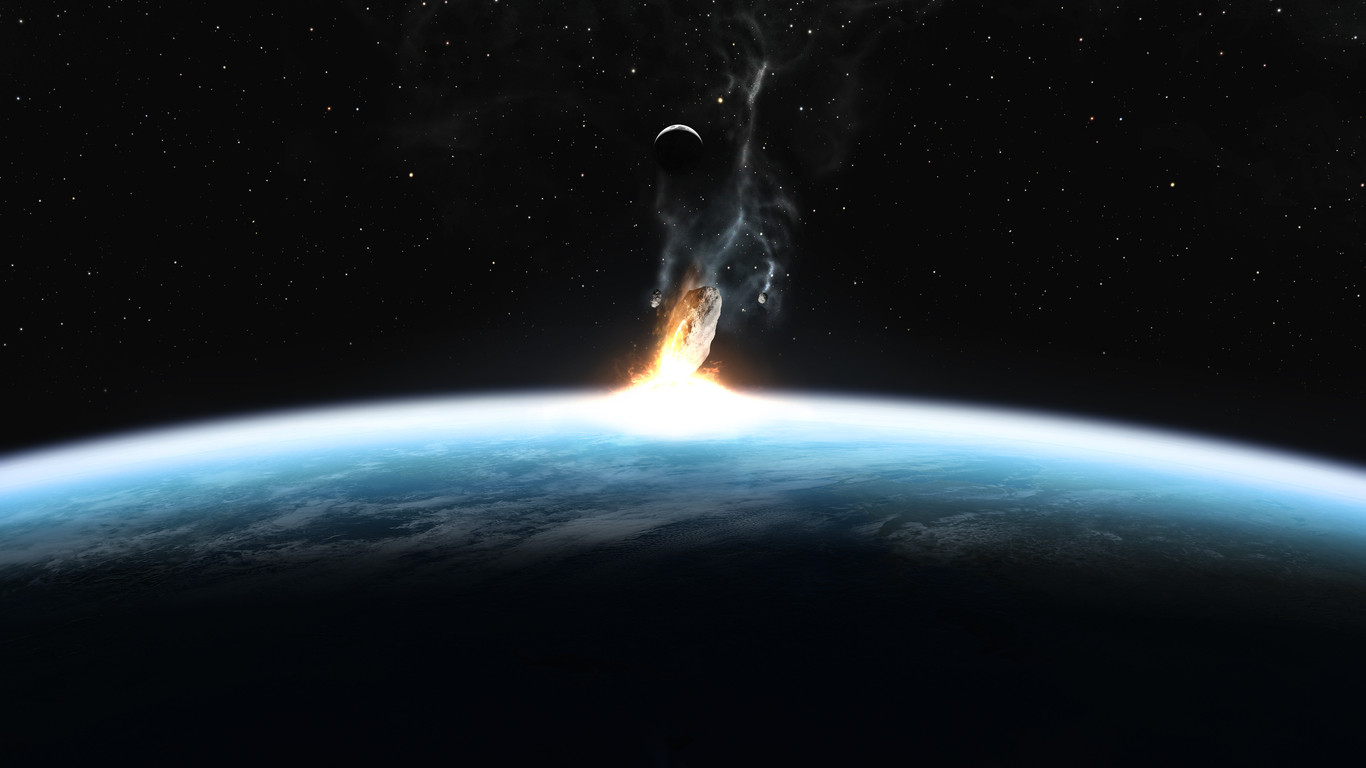A giant asteroid will pass “quite close” to Earth just a week before Christmas, according to Russian astronomers from the Immanuel Kant Baltic Federal University. The three-mile-wide space rock named 3200 Phaethon will fly by on Dec. 17. It’s believed that the asteroid will cause a stunning Geminids meteor shower several days beforehand.
How close will the asteroid be to Earth? According to NASA, it’s a “potentially hazardous asteroid whose path misses Earth’s orbit by only 2 million miles.” That may seem like an enormous distance, but it’s small when it comes to space. Plus, 3200 Phaethon has a strange orbit, and it will pass closer to the sun than any other named asteroid, reports Metro.
According to the Russian astronomers, the asteroid was likely once bigger, but as it passed by the sun it broke up into many smaller pieces. It could even be the remains of a comet nucleus. They noted: “The asteroid’s extremely elongated orbit, thanks to which it sometimes gets to the Sun closer than Mercury and it sometimes moves away farther than Mars, is another argument in favour of this theory.”
It’s unusual for an asteroid to produce the type of meteor showers that are usually linked to comets. NASA is a bit flummoxed by the asteroid because it’s unclear how the Geminids are being produced by 3200 Phaethon. They stated: “What it comes down to is that the Geminid parent object is a mystery.”
The space rock is named after Greek sun god Helios’ son, Phaethon, who nearly caused an apocalypse. According to the myth, Phaethon proved he was the son of Helios by dragging the sun across the sky. Phaethon used his dad’s chariot, but the horses wouldn’t obey his commands. Instead, they bolted across the sky, taking the sun with them. Subsequently, the earth was scorched, vegetation died out, and the great deserts of Africa came into being. But humanity nearly died out. Zeus saved the day by striking the horses with a thunderbolt, killing Phaethon as well.
People all over the world will be able to observe the Geminids meteor shower. Astronomers suggest looking towards the south to get the best view.


